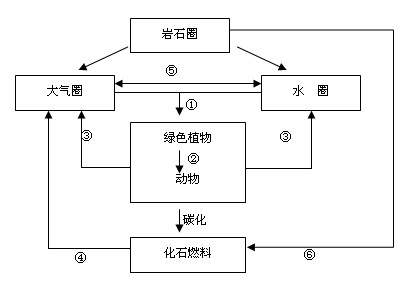This brief book is aimed at high school students, but speaks to anyone learning at any stage of life.
Its formal, serious style closely matches its content, a school-masterly book on schooling.The author, W.H.Armstrong, starts with the basics: reading and writing.In his opinion, reading doesn’t just mean recognizing each word on the page; it means taking in the information, digesting it and incorporating it into oneself just as digests a sandwich and makes it a part of himself.The goal is to bring the information back to life, not just to treat it as dead facts on paper from dead trees.Reading and writing cannot be completely separated from each other; in fact, the aim of reading is to express the information you have got from the text.I’ve seen it again and again: someone who can’t express an idea after reading a text is just as ineffective as someone who hasn’t read it at all.
completely separated from each other; in fact, the aim of reading is to express the information you have got from the text.I’ve seen it again and again: someone who can’t express an idea after reading a text is just as ineffective as someone who hasn’t read it at all.
Only a third of the book remains after that discussion, which Armstrong devotes to specific tips for studying languages, math, science and history.He generally handles these topics thoroughly(透彻地) and equally, except for some weakness in the science and math sections and a bit too much passion(激情) regarding history.Well, he was a history teacher — if conveyed only a tenth of his passion to his students, that was a hundred times more than my history teachers ever got across.To my disappointment, in this part of the book he ignores the arts.As a matter of fact, they demand all the concentration and study that math and science do, though the study differs slightly in kind.Although it’s commonly believed that the arts can only be naturally acquired, actually, learning the arts is no more natural than learning French or mathematics.
My other comment is that the text aged.The first edition apparently dates to the 1960s — none of the references(参考文献)seem newer than the late 1950s.As a result, the discussion misses the entire computer age.
These are small points, though, and don’t affect the main discussion.I recommend it to any student and any teacher, including the self-taught student.
小题1:According to Armstrong, the goal of reading is to________.
A.gain knowledge and expand one’s view
B.understand the meaning between the lines
C.express ideas based on what one has read
D.get information and keep it alive in memory小题2:The author of the passage insists that learning the arts_________.
A.requires great efforts
B.demands real passion
C.is less natural than learning maths
D.is as natural as learning a language小题3:What is a shortcoming of Armstrong’s work according to the author?
A.Some ideas are slightly contradictory.
B.There is too much discussion on studying science.
C.The style is too serious.
D.It lacks new information.小题4:This passage can be classified as________.
A.an advertisement
B.a book review
C.a feature story
D.a news report
小题1:C
小题2:A
小题3:D
小题4:B

 林恩教授首先注意到了加州大学研究脑量进化的专家杰里森的观点:在物种进化的过程中,物种的智力进化受到了环境的重要影响,这也是物竞天择的一种体现。动物们要想在恶劣的环境中成为幸存者,就必须进化出足够大的脑容量,这样它们通过视觉、听觉和嗅觉得到的信息才能在大脑中进行充分的分析。林恩教授认为,这一理论同样适用于人类的进化。在对诸多的数据分析后,林恩教授指出,寒冷的气候让人类得到了更大的脑容量。比如东亚人的平均脑容量为1416cc,欧洲人的平均脑容量为1367cc,而撒哈拉地区非洲人的平均脑容量则为1282cc。寒冷的气候让早期的人类必须学会如何御寒。在寸草不生,动物也很少出没的冬季,努力寻找食物从而生存下去使得这些地区的人类获得了越来越高的智商,以求不被大自然淘汰。
林恩教授首先注意到了加州大学研究脑量进化的专家杰里森的观点:在物种进化的过程中,物种的智力进化受到了环境的重要影响,这也是物竞天择的一种体现。动物们要想在恶劣的环境中成为幸存者,就必须进化出足够大的脑容量,这样它们通过视觉、听觉和嗅觉得到的信息才能在大脑中进行充分的分析。林恩教授认为,这一理论同样适用于人类的进化。在对诸多的数据分析后,林恩教授指出,寒冷的气候让人类得到了更大的脑容量。比如东亚人的平均脑容量为1416cc,欧洲人的平均脑容量为1367cc,而撒哈拉地区非洲人的平均脑容量则为1282cc。寒冷的气候让早期的人类必须学会如何御寒。在寸草不生,动物也很少出没的冬季,努力寻找食物从而生存下去使得这些地区的人类获得了越来越高的智商,以求不被大自然淘汰。